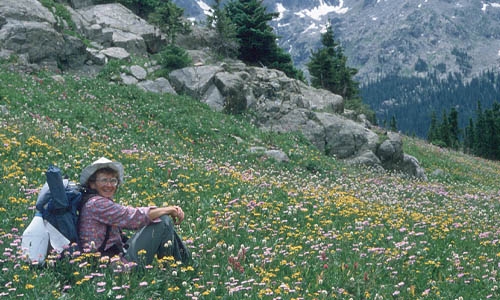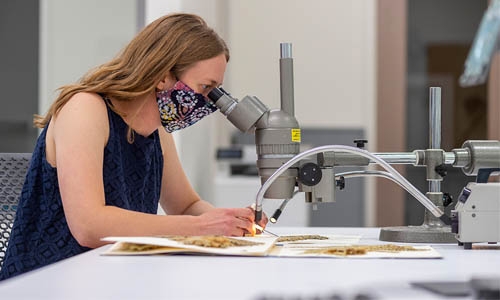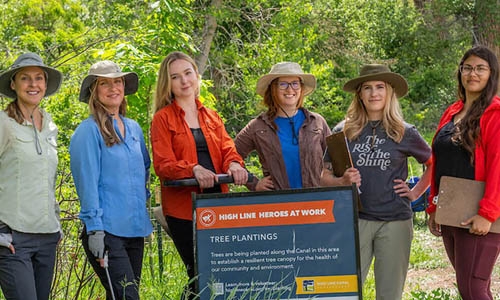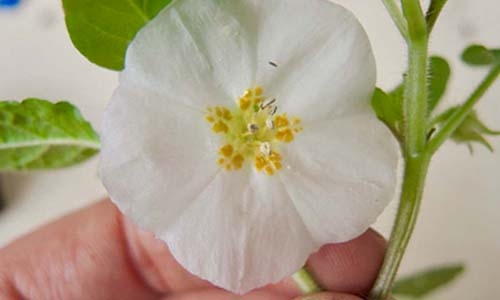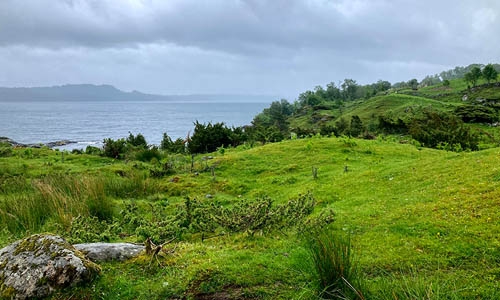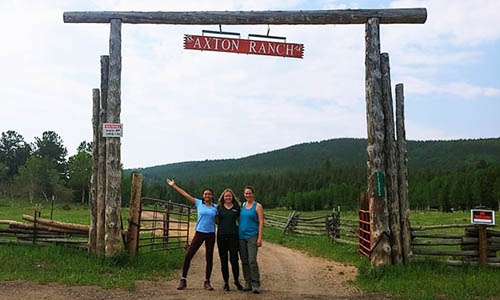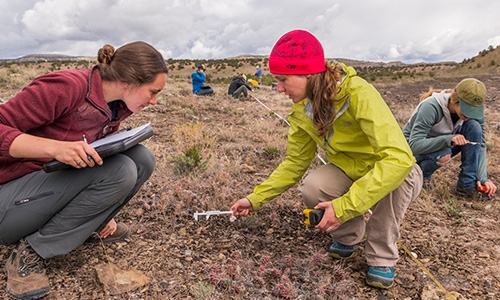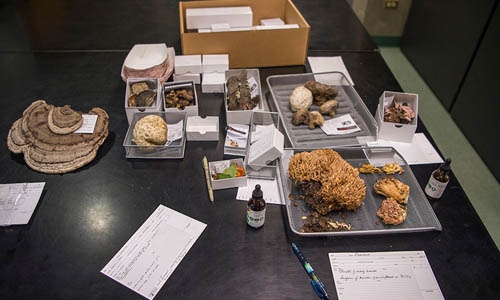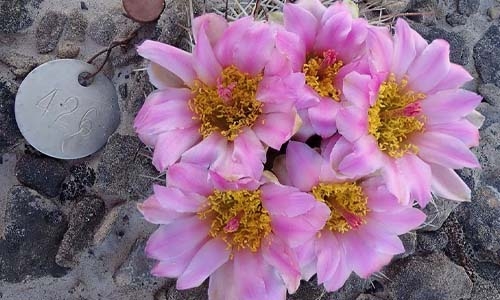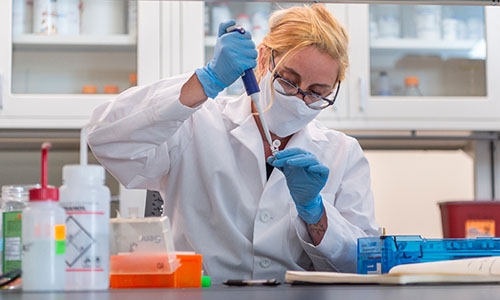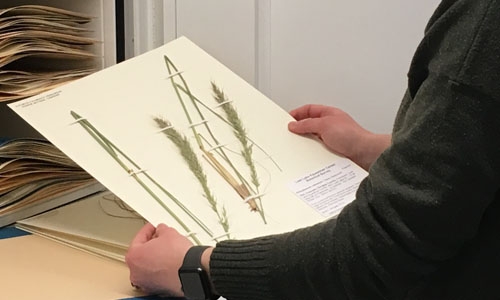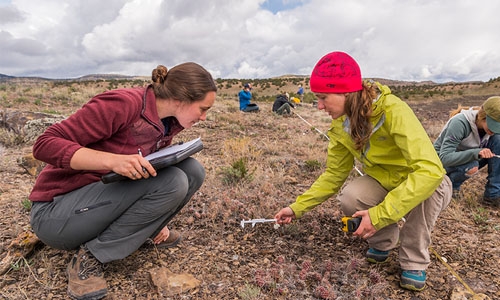Celebrating 55 Years of Volunteer Service
Loraine Yeatts, one of our most dedicated volunteers in the Kathryn Kalmbach Herbarium of Vascular Plants, recently celebrated a remarkable milestone: 55 years of unwavering service. Loraine’s
Herbarium Specimen Processing in Full Swing
In winter, the collection of new plant and fungal specimens stops altogether. However, the collectors of specimens made the previous summer are still working hard to prepare these for incorporation
High Line Heroes at Work
Denver Botanic Gardens’ scientists embarked on their third season of research this summer in partnership with the High Line Canal Conservancy to survey plant communities along the 71-mile trail. I was
Leucophysalis grandiflora, what are you doing here?
In soil, there is a natural storage of seeds—known as the soil seed bank—even in urban areas. These soil seed banks can serve as a potential source of species diversity for plant communities
Bringing international alpine plant research back to Colorado
I began researching rare alpine plants of Colorado a few years ago, progressing from understanding basic germination requirements to studying seed longevity in storage to examining the effects of
2021 Science: Year in Review
Even though our team continued to navigate a “post-pandemic” world in 2021, we were excited to tackle new and ongoing projects as well as launch in-person outreach programing. Our Science: Year in
The Relevance of Biodiversity Data
The digital age gave us a new dimension that infiltrates nearly all aspects of our existence. But, as we navigate this decade, the bearing that nature holds on our everyday lives has reestablished
Winter in the Natural History Collections
Activities in Denver Botanic Gardens’ Research and Conservation Department are highly influenced by the seasons. Scientists at the Gardens take advantage of the entire growing season by collecting
Which Traits Make Plants Most Vulnerable to Extinction?
I am in the very fortunate position that I can translate my work at Denver Botanic Gardens into a doctorate in integrative and systems biology from the University of Colorado, Denver. I’m gaining new
2020 Science: Year in Review
Despite the challenges our community faced throughout the global pandemic, the Research & Conservation Department is grateful for the many accomplishments we were able to celebrate in 2020. Our
Specimens as Source Information
In 1995 I published a book titled "Illustrated Keys to the Grasses of Colorado." This little book was well received and is still used today to identify Colorado grasses. Three years ago, I decided to
International Day of Women and Girls in Science
Denver Botanic Gardens is more than just a place for peace, respite and beauty; it is a scientific institution. Between our Horticulture and Research & Conservation departments, we are home to more

